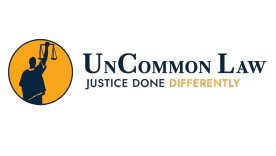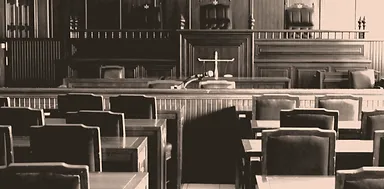In case you missed our big announcement, UnCommon Law has released a new, FREE handbook: Challenging Your Parole Denial in California State Court. Here's the challenge we're tackling: thousands of people are denied parole in California every year, and most have no...
Parole Resources
Challenging Your Parole Denial In California State Court
This handbook was written by the UnCommon Law staff.
MC275-HABEAS FORM
CLICK HERE
YOUTH OFFENDER PAROLE OPPORTUNITIES
This letter is for people sentenced to lengthy prison terms in California for crimes committed when they were juveniles (under age 18) or young adults (under age 26); these people are called “youth offenders.” The information here applies mainly to youth offenders...
FRANKLIN HEARINGS
Thank you for your interest in asking for a court hearing to make a record of how your young age at the time of your offense affected your actions. In People v Franklin (2016) 65 Cal.4th 261, the California Supreme Court said a defendant who will be entitled a youth...
YOUTH OFFENDER PAROLE
A Guide for People in Prison and Families and Friends CLICK HERE
BPH RN XX-XX PROPOSED REGULATORY TEXT
BARCLAYS OFFICIAL CALIFORNIA CODE OF REGULATIONS TITLE 15. CRIME PREVENTION AND CORRECTIONS DIVISION 2. BOARD OF PAROLE HEARINGS CHAPTER 3. PAROLE RELEASE Article 17. Parole Consideration Hearings for Elderly Inmates is added to read as follows: ARTICLE 17. PAROLE...
INFORMATION ABOUT THE ELDERLY PAROLE PROGRAM
On February 10, 2014, the federal three-judge court overseeing the California prison overcrowding class action case (Plata/Coleman v. Brown) issued order that required the State to develop and implement "a new parole process whereby inmate who are 60 years of age of...
PROPOSED REGULATIONS FOR STATUTORY ELDERLY PAROLE PROGRAM
The Board of Parole Hearings has been conducting elderly parole hearings under a court order since October 2014. At these hearings individuals who have been incarcerated for 25 years, and are over 60 years of age are considered for parole release. CLICK HERE
PAROLE PREPARATION TOOLKIT
An action guide for understanding and preparing for your parole hearing CLICK HERE
Elderly Parole
BPH RN XX-XX PROPOSED REGULATORY TEXT
BARCLAYS OFFICIAL CALIFORNIA CODE OF REGULATIONS TITLE 15. CRIME PREVENTION AND CORRECTIONS DIVISION 2. BOARD OF PAROLE HEARINGS CHAPTER 3. PAROLE RELEASE Article 17. Parole Consideration Hearings for Elderly Inmates is added to read as follows: ARTICLE 17. PAROLE...
INFORMATION ABOUT THE ELDERLY PAROLE PROGRAM
On February 10, 2014, the federal three-judge court overseeing the California prison overcrowding class action case (Plata/Coleman v. Brown) issued order that required the State to develop and implement "a new parole process whereby inmate who are 60 years of age of...
PROPOSED REGULATIONS FOR STATUTORY ELDERLY PAROLE PROGRAM
The Board of Parole Hearings has been conducting elderly parole hearings under a court order since October 2014. At these hearings individuals who have been incarcerated for 25 years, and are over 60 years of age are considered for parole release. CLICK HERE
Youth Parole
MC275-HABEAS FORM
CLICK HERE
YOUTH OFFENDER PAROLE OPPORTUNITIES
This letter is for people sentenced to lengthy prison terms in California for crimes committed when they were juveniles (under age 18) or young adults (under age 26); these people are called “youth offenders.” The information here applies mainly to youth offenders...
FRANKLIN HEARINGS
Thank you for your interest in asking for a court hearing to make a record of how your young age at the time of your offense affected your actions. In People v Franklin (2016) 65 Cal.4th 261, the California Supreme Court said a defendant who will be entitled a youth...
YOUTH OFFENDER PAROLE
A Guide for People in Prison and Families and Friends CLICK HERE









